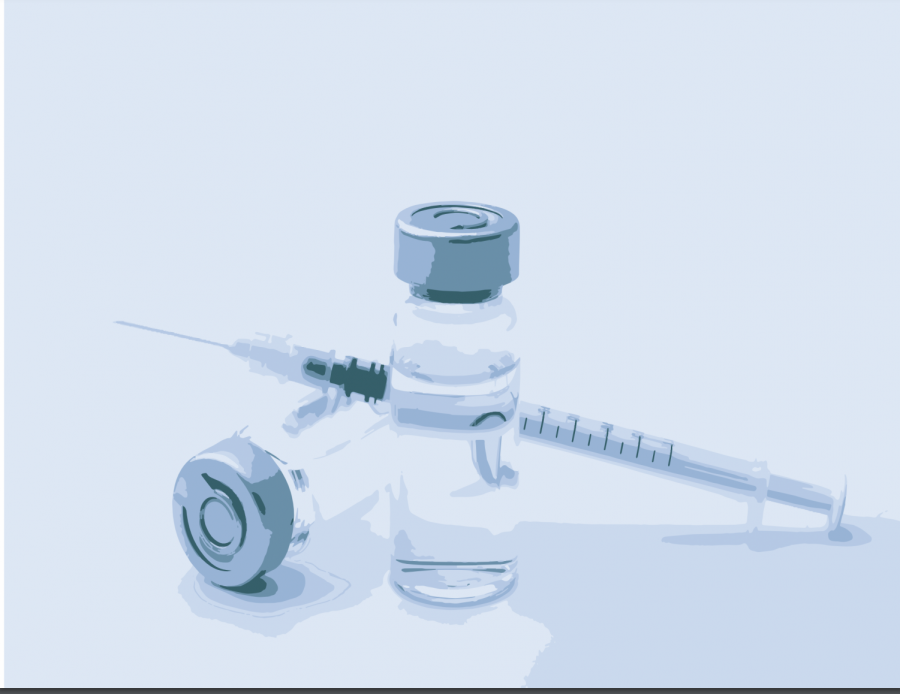UTSA professor Mary Dixson speaks on COVID-19 vaccine
December 27, 2020
“I know colleagues who have gotten COVID … I know students who are caring for family members with COVID … I know students who have contracted COVID … I know people who’ve lost family members to COVID,” said UTSA Professor Mary Dixson.
Dixson’s experience isn’t very different from that of the average American. With over 11 million cases and 200,000+ deaths as of the end of November, the pandemic continues to rage on. The only source of hope and optimism throughout the pandemic has been developing a vaccine to control the spread and contraction of the virus.
Back in July, when the pandemic was swiftly progressing, Dixson chose to participate in one of the initial COVID-19 vaccine trials at the Clinical Trials of Texas, Inc. She decided to participate because she wanted to contribute to the process as much as she could.
“The pandemic makes us all feel helpless and the idea that you can, even in a small way, feel like you are contributing to ending it is … it’s a good feeling,” she said.
Dixson was one of the first subjects to take part in the trials, which meant she was able to experience the process from “behind the scenes”. This included, as Dixson described, any “hiccups” that occurred during the development and implementation of the trials. COVID-19 is a relatively new virulent particle for the scientific community, which has led to a lot of uncertainty about its nature and the development of a potential vaccine. This uncertainty, combined with the skeptical attitude toward vaccines in general, has led to a lot of public mistrust and the spread of misinformation. However, Dixson chose to trust the process of the trial rather than rely on misinformation.
“By trusting the people who are actually giving me the shot, I think it was a better process,” Dixson explained, emphasizing the need to show confidence in the medical community in a time like this.
Dixon’s health has been stable in the six months post-trial. While she did have some side effects after her second shot, including a low-grade fever, chills, headache and fatigue, indicating she may have received the actual vaccine and not the placebo, she has been healthy.
“I’ve been in perfect health without any kinds of issues,” Dixson said when asked about any health concerns she experienced in the past six months. “If I had any symptoms, they would’ve stopped the trials.”
While some companies have halted their trials due to health concerns, many companies have reported successful vaccine candidates. Pfizer, one of the world’s leading pharmaceutical companies known for producing a wide range of medicines and vaccines, recently reported that it had developed a potential vaccine with 95% effectiveness. As someone who took part in a vaccine trial, Dixson says she was “over the moon” upon hearing the news.
While she expressed her optimism, Dixson pointed out the importance of multiple vaccine candidates being developed effectively to tackle the virus on a large scale. She further highlighted her belief that the race to developing a vaccine is one that everyone must win.
“This is not a one-horse race; this is a race where you want all the horses to get across the line,” she said.
She also emphasized the importance of following basic healthcare guidelines like mask-wearing and social distancing. A vaccine is just one facet in effectively bringing the pandemic under control. “As individuals, following basic healthcare guidelines lend us more control than we think we have,” Dixson explained. “It’s important to realize that we’re not there yet. People still need to do all the things they can to prevent the transmission of the disease, and we need to be making sure we are supporting those people who are going through this disease right now,” she added.
A vaccine is a step in the right direction. It is the sliver of hope that everyone has been looking for since late January of this year, when the World Health Organization declared the outbreak a global health emergency. But as Dixson explained, the development of a potential vaccine does not entail that basic healthcare guidelines be ignored. The virus is still a major biological threat, and as a society, we need to continue listening to the scientific community as the process of vaccine development continues. We must not let our guard down or underestimate this virus until the very end.








Vithika • Dec 27, 2020 at 1:54 pm
Amazing and well researched article, loved how articulate and clear the writer is.